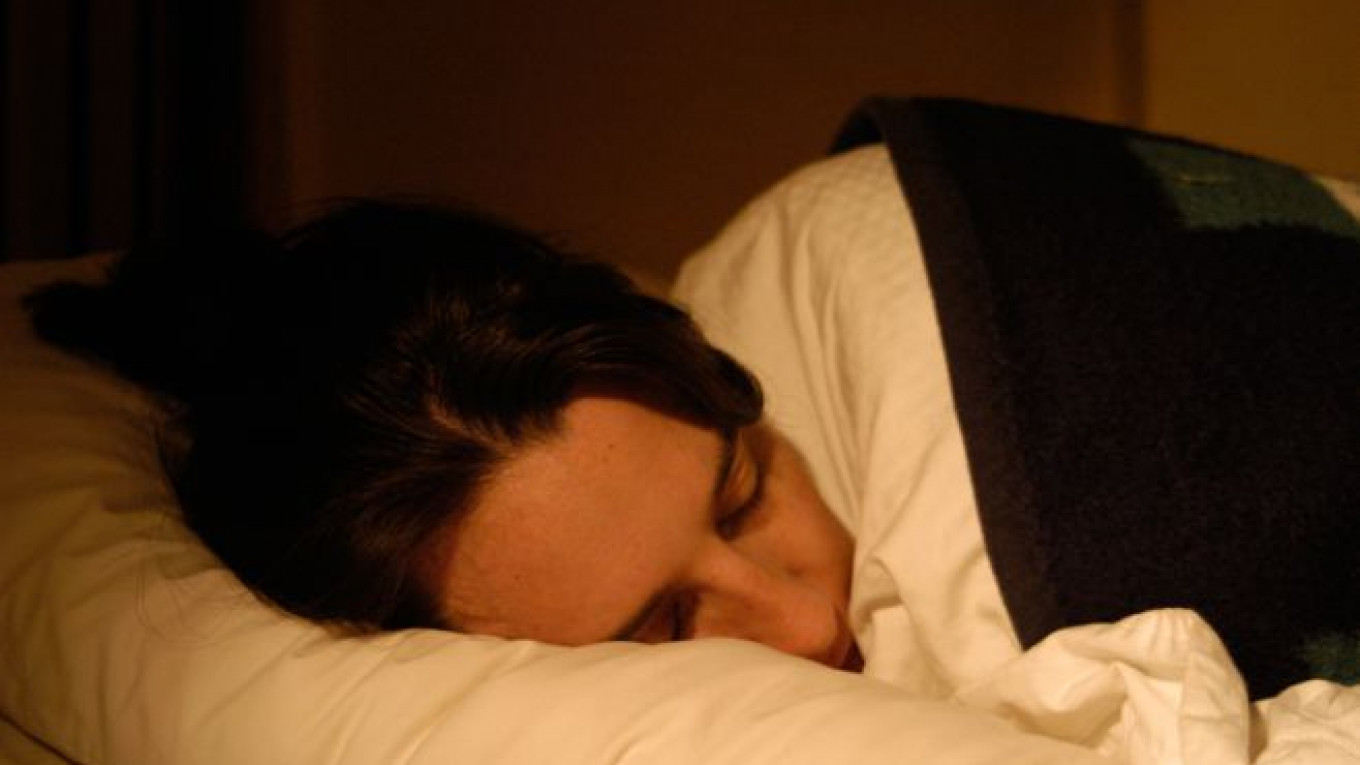A Russian woman has fallen the latest victim of a mysterious "sleeping illness" that has gripped a small village in Kazakhstan, causing its sufferers to fall asleep for no apparent reason and stay so for days at a time.
The 58-year-old Russian national and three Kazakh citizens were airlifted from the village of Kalachi — to which the outbreak of the illness seems to be confined — to the Kazakh capital Astana for treatment, Interfax reported earlier this week, citing the deputy chief of the Esil district, Saule Agymbayeva.
More than 100 people have contracted the disease since the first case was recorded in the spring of 2013, Agymbayeva was quoted as saying. Doctors and researchers have struggled to come up with any coherent explanation for the mysterious disorder, nicknamed the "sleeping illness" in Russian media.
Those suffering from the illness simply fall asleep at random — on the streets, at work or at school — with nothing able to wake them up. Many then awaken days later, often suffering from memory loss and hallucinations, according to Russian and Kazakh media reports.
Speculations about the roots of the disease abound, with theories including mass psychosis, poisoning, insect bites, alien invasion and the radioactive effects of an abandoned Soviet-era uranium mine in the area.
But researchers have found no trace of any anomalies, poisons or elevated radiation levels around the village, nor any abnormal test results in the sufferers — except for the fact that they just stay asleep, according to media reports.
The official name for the illness is "encephalopathy of unknown etiology" — or, in layman's terms, a brain disorder that nobody can explain.
"We have ruled out infections, we checked blood and spinal fluid, nothing is there," doctor Kabdrashit Almagambetov from Esil, the capital of the district, told The Siberian Times.
Doctors had initially "categorized it as toxic encephalopathy, but 'toxic' is just a guess here, and encephalopathy is just the title of the set of brain diseases," he was quoted as saying.
The numbers of new cases previously peaked in late spring and declined in the fall, spurring hopes that colder weather was somehow reining in the spread of the illness. But this year, a new peak began around Dec. 20 and put more than 30 people to sleep, Kazakhstan's Tengri News reported last week.
That is a staggering number, especially given the fact that Kalachi has a population of only 680, according to Interfax.
The village lies not far from Krasnogorsk, a nearly abandoned town of 130 which once housed a population of nearly 6,500, most of whom worked in the local uranium mines.
No cases of the "sleeping illness" have been reported in Krasnogorsk, and workers who toiled at the uranium mines told local media that whatever side effects they might have suffered, inexplicable cases of sleepiness were not among those.
The Russian retiree who is among the latest victims had arrived in Kalachi to visit her uncle — and then promptly fell asleep, Tengri News reported.
Regional authorities have pledged to relocate Kalachi residents to other towns starting early this year, the report added.
A Message from The Moscow Times:
Dear readers,
We are facing unprecedented challenges. Russia's Prosecutor General's Office has designated The Moscow Times as an "undesirable" organization, criminalizing our work and putting our staff at risk of prosecution. This follows our earlier unjust labeling as a "foreign agent."
These actions are direct attempts to silence independent journalism in Russia. The authorities claim our work "discredits the decisions of the Russian leadership." We see things differently: we strive to provide accurate, unbiased reporting on Russia.
We, the journalists of The Moscow Times, refuse to be silenced. But to continue our work, we need your help.
Your support, no matter how small, makes a world of difference. If you can, please support us monthly starting from just $2. It's quick to set up, and every contribution makes a significant impact.
By supporting The Moscow Times, you're defending open, independent journalism in the face of repression. Thank you for standing with us.
Remind me later.






